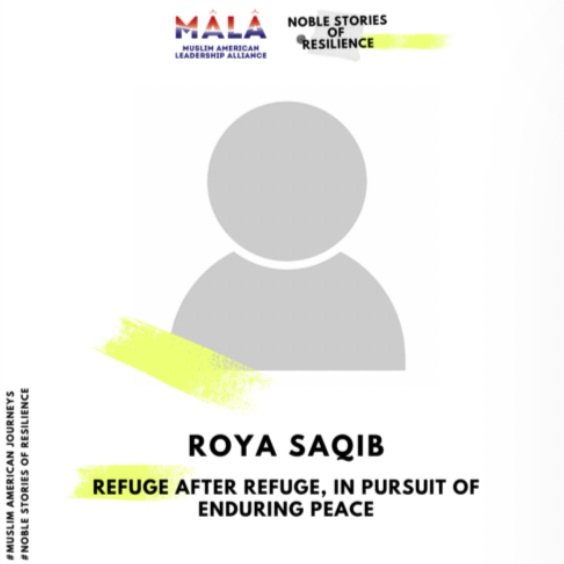Roya Saqib: Refuge after Refuge, in Pursuit of Enduring Peace
Ms. Roya Saqib is a Research Fellow at New York University and an Instructional Specialist at Montclair State University. She holds an MSc in Management from Simmons University and another master’s degree in International Relations from Jawaharlal Nehru University, New Delhi. She currently lives in Montclair, New Jersey.
Ms. Roya’s family fled twice to Pakistan during the Civil War in her early childhood. She enrolled in nursery classes, but her family struggled to survive as refugees. After a few months, her family could not support her nursery schooling.
With the endurance of struggling as refugees in Pakistan, her family moved back to Kabul and then left for Pakistan when the war intensified. This time, she got enrolled in Prep class, but again, her parents could only afford the fee for a few months. Her cousin was working in an English Center where she was able to learn foundational English that she could attend for free.
After returning to Kabul for the second time, Ms. Saqib says, “I was in primary school when the Taliban took over and banned girls’ education. I started studying at home. It was not easy; I had no teacher, but only my parents and siblings.”
While being lucky to belong to a middle-class, educated family, she still wanted to have regular schooling. She says, “I was crying and longing for educational opportunities.” However, all this would change after the end of the Taliban rule in 2001.
The new interim government re-opened schools for girls. Thanks to the support for girls’ education and the accelerated education system they put in place. The system allowed those girls who could study informally, in homeschooling or tutoring classes, to sit in higher classes than where they left off before the Taliban, with the condition that they pass exams (exams were also simplified).
Ms. Saqib says, “I used that opportunity, and due to so much interest in education and my previous homeschooling knowledge, I entered grade 10 in 2003.” She worked very hard, day and night, and took Mathematics and English tutoring classes in private education centers besides her school. It helped her succeed in exams that promoted her to higher classes and helped her catch up and understand lessons in her new class (which was all of sudden a shift from basic math to Algebra). The only formal classes she could regularly attend were high school (grade 10-12).
Despite having lost many years in her previous education, the new opportunities helped her widen her educational horizons and quickly catch up and graduate from high school at a very young age in 2005. She says, “all of these came with a strong conviction and hard work.” Something she carries on as a young leader.
She became an aspiring leader and would fulfill her dreams. She worked in many positions in the development sector and the government. She studied in India and the United States through the Fulbright Scholarship.
After completing her program, Ms. Saqib returned to Afghanistan. Her education and hard work paid off. She served in high-level positions, including as Director of a National Program on Women’s Economic Empowerment, Director General of Education and Training at the TVET Authority, and technical assistant to the President of Afghanistan.
Ms. Saqib says that “my childhood hero is my father. I looked at him, his education, his commitment to the family, serving the country, loyalty to his job, doing more than he had to for his job, and working hard to make sure his family does not face financial problems despite the many challenges.”
After the fall of Kabul in August 2021, upon arriving in the United States, Ms. Saqib says that “it was a mixed feeling —- here you are on a new journey of life with all uncertainties, and once again starting from scratch not knowing what lies ahead, sad because two of my family were still left behind and at risk and at the same time, being happy that I can pursue my life goals, without being restricted by an ignorant group of people and their regime (the Taliban).
She says that “the best moment for me was when I got an offer to start teaching at the university. The worst moment was when I saw my mother having a stroke while we were still at the military base.”
Ms. Saqib would like to access life opportunities in the United States in peace and serenity and contribute to poverty alleviation and social justice causes. She wants to continue supporting and caring for the people of Afghanistan in general and Afghan women in particular. She would like to pursue a doctoral program in the long run.


